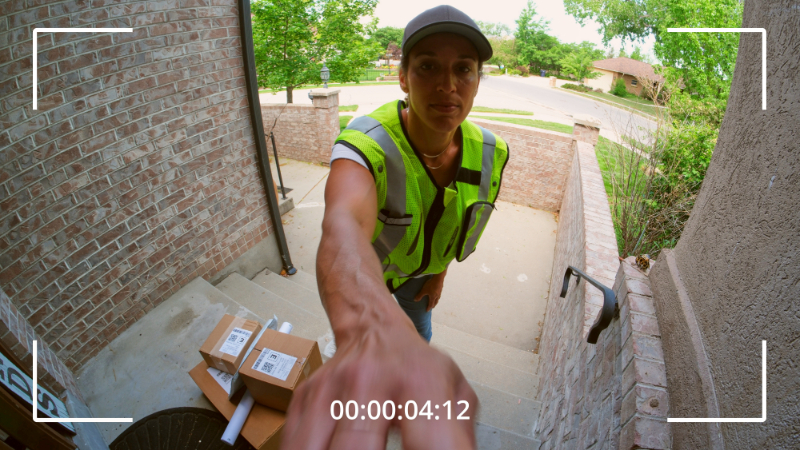
Buying your first home can be thrilling and daunting at the same time. It’s a chance to fulfill a long standing dream but it’s also a major financial step that can be overwhelming. But as seasoned local experts, we at Michigan Top Producers are here to guide you through the journey of finding your in Southwest Michigan’s vibrant real estate market.
Check out our 9 expert tips for first-time homebuyers to ensure you can confidently navigate every step of the process, from budgeting to finding the perfect home.
1. GET TO KNOW THE SOUTHWEST MICHIGAN REAL ESTATE MARKET
Navigating the Southwest Michigan real estate market means getting a clear picture of the local real estate landscape. It will help you understand how real estate prices vary from area to area, the homes you can buy given your budget, and the first-time homebuyer programs available to you.
To give you an idea, in December 2023, the median property price of homes for sale in Southwest Michigan was $265,000. In Grand Rapids, MI, the median price was $326,900, trending up 9.2% year-over-year, according to Realtor.com. In Kalamazoo, on the other hand, it was $237,500 trending down -1% year-over-year.
Thus, you need to weigh your home options against your budget in the city you’ve set your eyes on. Are you willing to sacrifice square footage for a home closer to downtown amenities? Or would you rather move to a smaller city with a lower cost of living and the opportunity to own a bigger home?
Whatever you decide, knowing that there are special mortgage programs for first-time homebuyers in Michigan, expands your options. The Michigan State Housing Development Authority (MSHDA) offers free counseling and down payment assistance to first-timers.
These first-time homebuyer programs are:
- The MI Home Loan, a fixed 30-year mortgage that can be availed through participating lenders
- The MI 10K DPA loan program, which is a downpayment assistance program
- The Mortgage credit certificate (MCC), which can help qualified buyers save money on taxes
Additionally, you can also seek assistance through local housing initiatives that are available in Michigan’s major cities.
2. ASSESS YOUR BUDGET AND FINANCIAL READINESS
Before you start house hunting, your first priority should be to assess your financial health. Buying a home is a huge step and you should be prepared for the expenses that come with the purchase and the fiscal responsibilities that come with ownership.. Aside from the down payment, closing costs, and monthly housing costs, you need to budget for taxes, maintenance and repairs, and potential upgrades.
The best way to assess your readiness is to audit your finances. Here are some steps that we recommend:
- Check your savings. Before taking that big step, keep in mind that you should have an emergency fund that’s worth at least three to six months of living expenses on top of your home buying budget. You will also need to start saving up for the down payment of the home you hope to purchase.
- Get pre-approved by a lender. Check your credit score, which is a number that’s calculated based on how well you manage your debt (credit card use and payments, installment loans, etc.). Broadly, a pre-approval for a mortgage factors in your credit score, your employment, and your bank statement. It also shows the seller that a lender is willing to fund the purchase of a home, which makes you a serious buyer in the seller’s eyes and strengthens your offer.
- Evaluate your spending habits. If you’re managing your finances for a future home investment, don’t forget to factor in your monthly expenses. This includes everything from groceries and utilities to hobbies and entertainment. By tracking your expenses, you’ll get a clear picture of how much you can comfortably afford for a mortgage payment.
- Explore mortgage options. Researching your mortgage options will help you find the most viable choice while taking into consideration your budget and financial situation.
Examples of mortgage options include a conventional loan that requires a 20% down payment and offers competitive interest rates. Meanwhile, an FHA loan, backed by the Federal Housing Administration, allows for a lower down payment (as low as 3.5% of the property’s asking price), which is attractive for first-time homebuyers – but note that this option comes with higher interest rates.
A VA loan provides significant benefits to veterans and qualified military personnel. On the other hand, USDA loans, backed by the U.S. Department of Agriculture, are for buyers looking for a home in rural areas. These loans may require zero down payment and aim to promote homeownership in rural communities.
As previously mentioned, the Michigan State Housing Development Authority (MSHDA) has several programs for first-time homebuyers. You can explore the best options here.
- Stick to your budget. When buying your first home, sometimes you can get carried away. Keep your focus on finding a home that meets your needs and budget. Also bear in mind that the asking price isn’t always the final price, so there’s always room to negotiate a price that fits your budget.
3. DEFINE YOUR NEEDS AND WANTS

If you’re shopping around for a house, it’s important to be able to clearly define your unique requirements and preferences. Listing down your needs and wants will narrow down your home search and save you time and money in the process.
Needs are must-haves, non-negotiables like location, number of bedrooms and bathrooms, a backyard if you have kids and pets, parking, and access to good schools.
Wants are nice-to-haves, features or amenities you can live without but would enhance the living experience if they were present as well. These include pools, hot tubs, specific interior/exterior styling, appliances, great views, good landscaping, and so on.
Being able to identify your needs and wants will help you stay focused during your search. You can start by looking for homes that meet your needs then compare them with homes that include features from your “wants list.” Ranking the home features can also help you when it comes to making the final decision. For example, a spacious living room might be a higher priority than a walk-in closet.
It’s good to remember that finding the right balance between your needs and wants will get you closer to finding a home that best fits your preferences.
4. WORK WITH A REAL ESTATE AGENT
Navigating your first home buying experience will be easier when you work with a real estate agent. Having an agent by your side is invaluable. They will:
- Provide local market insight. Agents have in-depth knowledge of the local market, including property values, recent trends, and upcoming listings. They can help you find properties that fit your budget and needs in your desired area within a quicker time frame.
- Negotiate on your behalf. Skilled agents represent your best interests during negotiations, ensuring you get the best possible price and terms on your future home.
- Cut through the complex paperwork. Save yourself the stress of handling all the paperwork a transaction requires. Your agent will help you through the thicket of documents.
- Provide access to a network of allied professionals. Agents often have connections with mortgage lenders, home inspectors, and other professionals, which can streamline your entire home buying process.
- Identify potential issues in the property. Real estate agents have a legal and ethical responsibility to disclose any known material defects or issues with a property to potential buyers. Thus, agents will address defects with the seller, which can result in repairs, a lower selling price, and other concessions.
5. EXPLORE PROPERTY OPTIONS IN SOUTHWEST MICHIGAN
After getting pre-approved for a mortgage and hiring a real estate agent, you can now explore your property options. This is an exciting part of the home buying process as you get to walk through prospective homes and get a feel of its overall atmosphere – of whether a home might be “the one” or not.
When exploring your property options, it’s important to talk to your agent about your preferences and requirements. That’s why listing down your needs and wants is a must so you and your agent know what to look for.
You can ask your agent some important questions to determine if the home is worth visiting:
- What’s the owner’s reason for selling the house?
- Has the property been on the market for a while?
- Is the asking price too high or too low?
- Can you tell me about the location and neighborhood?
- What’s the cost of taxes, insurance, and utilities?
- Does the property meet my criteria?
When you visit the property, pay attention to every detail, from the neighborhood and location to the home and its features. You can drive around the area as well to check its accessibility to the essentials such as groceries and pharmacies.
Inside the home, bring a check-list to see if it meets your requirements. As you examine the property, it’s good to keep these questions in mind:
- Is there any need for repairs or replacements?
- Are there any red flags (signs of mold, unwanted moisture, doors and windows that don’t align when shut, etc.)?
- What are the home inclusions (furniture, fixtures, appliances, etc.)?
Don’t forget to snap photos and take notes for each property because this will serve as your guide before making your final decision.
6. MAKE AN OFFER

When you finally find “the one,” it’s time to make an offer! Your real estate agent will assist you through the process and help you decide on a competitive offer based on market demand, the seller’s reasons for selling, and other factors.
The negotiation phase begins when your agent presents your offer to the seller’s agent. The seller can then choose to accept, propose alternative terms in a counteroffer, or reject it. This process can involve some back-and-forth until you either reach an agreement or decide to move on.
Prior to making an offer, review your budget again. This time, consider the approximate closing costs, property taxes, home inspection and insurance fees, homeowner’s association fees, any urgent repairs, and essential furniture and appliances that you may need before settling into your new home.
Once you and the seller agree on a price, you’ll place a deposit in an escrow account (which is like a holding period, usually around 30 days) administered by a third company, like a title company. During this time, the seller takes the property off the market since there’s already an agreement of your intent to purchase, provided that the home inspection doesn’t uncover any major issues.
7. CONDUCT DUE DILIGENCE AND ORDER A HOME INSPECTION
Finding the right home is truly exciting. But as perfect as your future home might seem, conducting due diligence and a home inspection are essential to avoid turning your dream house into a money pit.
During the due diligence period, you do an in-depth research and investigation of all the aspects of the transaction in order to gather the needed information before officially committing to the purchase. This involves reviewing public records, verifying ownership and any outstanding liens on the property, zoning rules, and hiring a licensed home inspector. It’s also a good practice to do your research on the neighborhood to assess its security and proximity to schools, parks, grocery stores, and the like.
These processes work together to uncover any hidden problems and potential costs before closing on the home. Think of this step as your safety net, catching unexpected issues that could derail your homeownership journey.
If the home inspection exposes major problems the seller failed to disclose, you typically have the option to back out of the deal and get your deposit refunded without incurring any penalty. Alternatively, you can negotiate with the seller to fix the issues or lower the price of the home.
8. FINALIZE THE PURCHASE
When both sides are in agreement and the home inspection uncovers no concerning issues, then it’s time to close the deal! The closing period is essentially where all the document signing takes place together with the seller, their agent, your agent, title company representative, lender company representative, and possibly a real estate attorney.
But before the keys are officially handed over to you, here are some things to know to help you prepare for closing day:
- Hire a real estate lawyer. Although this is optional, hiring a real estate attorney can protect you from any unforeseen circumstances.
- Review the closing documents. It’s crucial to make a thorough review of the numerous closing documents. Make sure your real estate agent or attorney explains all of the paperwork, which includes closing disclosure, initial escrow statement, mortgage or deed of trust, and purchase agreement, among others.
- Negotiate closing costs. Closing costs can be steep but they are negotiable. You can inquire if it’s possible for the lender company to reduce their origination fee or even waive application charges.
- Do a final walk-through. Before making it official, a final walk through the property ensures that all is in order. You can check if the seller has completed the necessary repairs and made any required adjustments based on the purchase and sale agreement.
9. SETTLE INTO YOUR NEW HOME

Congratulations! You have now successfully bought your first home! Now that you’ve completed your home buying journey, it’s time to settle in. Just bear in mind that being a homeowner is a huge responsibility and it’s important to ensure that your property is safe and secure.
Here are some things that you can do as you settle down in your new place:
- Secure all entry points. Make sure to change the locks, access codes, and ensure the security of all entry points.
- Install a security system. Getting a security system in place will give you peace of mind especially if you’re moving to a new neighborhood. If the home already has an existing security system, you may want to pay reconnection fees or opt to hire a new provider.
- Book a deep cleaning service. While you can certainly tackle the cleaning yourself, settling into a new home can be quite exhausting with all the moving and unpacking that needs to be done. So why not give yourself a break and let professional cleaners make your new home sparkle?
- Familiarize yourself with circuit breakers and emergency shut-offs. Living in a new place needs some getting used to and it’s important to familiarize yourself with how things work. Be sure to know the location of the circuit breaker and emergency shut-offs and label them accordingly. It’s also a good idea to organize all the appliance manuals in one place for easy access and reference.
- Make sure smoke detectors are working. Check smoke and carbon monoxide detectors once you move in. You may need to change batteries or replace the unit entirely. Experts recommend checking the condition of your detectors regularly (at least every six months).
- Connect your utilities. This is one of the most important steps right before moving in. Remember to contact your local providers so you can connect your utilities such as electricity, water, and gas before your move to avoid any inconvenience while settling into your new place.
Work with Michigan Top Producers Real Estate Group to find your perfect home
If you’re still in the process of looking for homes for sale in Southwest Michigan, enlist the help of Michigan Top Producers Real Estate Group to guide you through the process.
Michigan Top Producers Real Estate Group is a premier real estate brokerage in West Michigan established by industry veterans David Thompson, Brandon Hamilton, and Ryan Teunis. With over five decades of collective experience and expertise in the field, Michigan Top Producers has provided exceptional service to numerous clients who have bought and sold homes in the region.
To buy your first home in Southwest Michigan, get in touch with the Michigan Top Producers Real Estate Group today. Let their expertise help you navigate the Southwest Michigan real estate market. Call 269.222.2550 or contact us here to get started.

